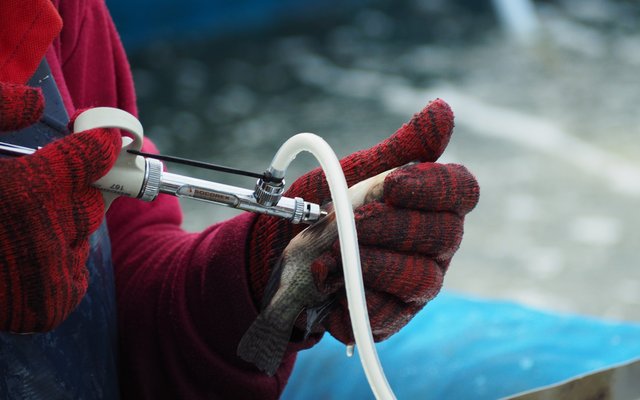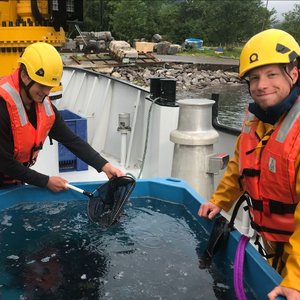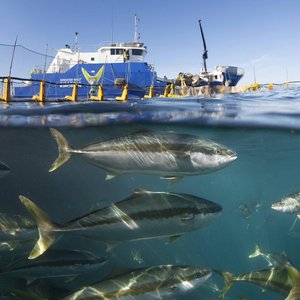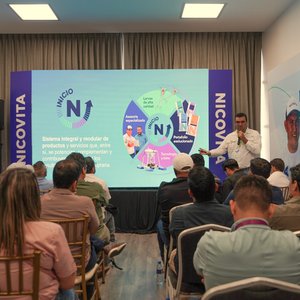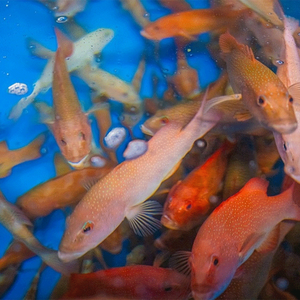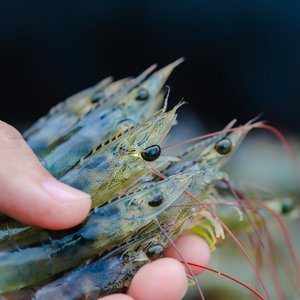As part of the growing Feed the Future Innovation Lab for Fish portfolio, a new project in Zambia aims to reduce aquaculture losses due to fish mortality from identified disease-causing agents. The Development and Investigation of the Delivery Mode of a Multivalent Bacterial Fish Vaccine in Zambia project will help advance the understanding of the diseases impacting tilapia farmers in Zambia at Lake Kariba. This will be the first step towards vaccine development.
“The growth of the aquaculture industry has led to increased fish diseases, which are observed as a major obstacle to the success of the industry. Zambia has not been an exception, as diseases are rising. As a result, vaccination is the most likely disease management tool to avoid antibiotic use and help prevent antimicrobial resistance,” said Bernard Mudenda Hang'ombe, the project’s lead principal investigator and University of Zambia professor.
Local vaccine formulation and delivery are the best tools for disease management, so understanding the diseases affecting tilapia is critical to the process of developing vaccines against major bacterial diseases. Initial attempts to develop an autogenous vaccine showed promise and led to the project's conception.
“The main driving force behind this project came about when the quest to find alternative methods of controlling fish diseases based on sound economic, environmental, and ethical aspects led to the development of vaccines,” Hang'ombe said. “The identified organisms associated with sick and dead fish were found to be of bacterial origin and hence a possible vaccine could be developed as reported elsewhere in the world.”
“After we identify the bacterial organisms associated with fish mortality, we will begin exploring vaccine formulation and development,” he said. “This initial project will hopefully lay the groundwork for advancement of a vaccine through possible product registration, administration method refinement, and vaccine adoption within the Zambian industry.”
The team hopes to produce a multivalent vaccine as well as an easier way of administering the vaccine. “We’re excited for the project’s potential to produce a multivalent fish vaccine,” Hang'ombe said. “In other words, a vaccine that will provide protection against several disease-causing organisms or disease-causing strains could be developed. This has been done in other aquaculture sectors in other countries, so we hope to achieve this too by providing this desirable tool to Zambian farmers.”


